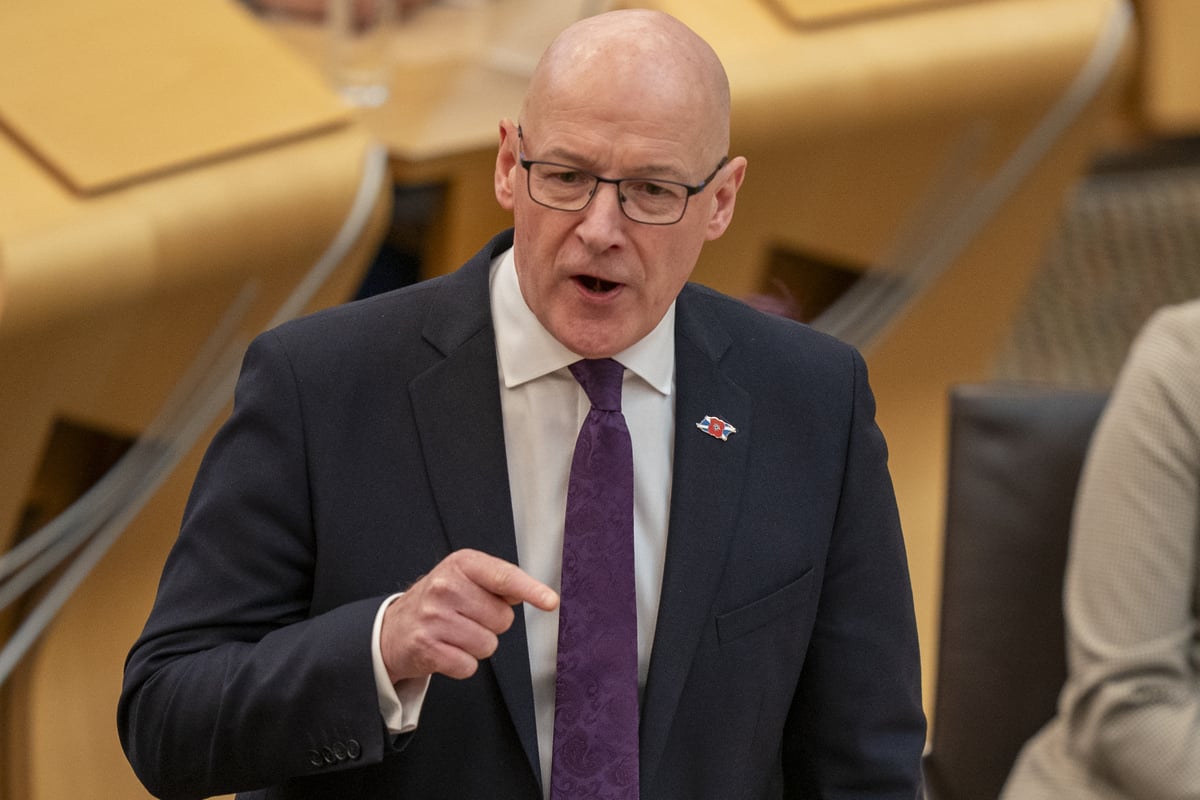Copyright scotsman

Business leaders have urged John Swinney to “resist the temptation” to copy the UK government’s tax rises, branding it as a “real opportunity to attract new jobs and investment” to Scotland. Scottish Financial Enterprise (SFE) and the Scottish Retail Consortium (SRC) both warned the First Minister that raising income tax would “hit workers” and not help the economy. It comes as the SNP demanded the UK government reverse its tax increase on Scotch whisky. And it has coincided with three of the UK’s most influential business organisations making a rare joint intervention urging the Chancellor to abolish the energy profits levy (EPL). The British Chambers of Commerce, Scottish Chambers of Commerce, and Aberdeen & Grampian Chamber of Commerce (AGCC) have jointly written to Ms Reeves calling for the EPL to be scrapped and replaced with a “stable, proportionate and predictable” fiscal regime. The pleas come after Mr Swinney on Thursday rolled back on his commitment not to change income tax in the Scottish Budget, citing “changing circumstances”. Reports have suggested Chancellor Rachel Reeves is preparing to increase the basic rate of income tax down south. She seemed to be preparing the public for this when she made a speech on Monday about the “hard choices” which were coming up. It is not normal for the Chancellor to make speeches three weeks before the Budget. SFE chief executive Sandy Begbie said: “Driving economic growth and commitments around tax have been at the forefront of the political narrative over the past 18 months, both at Westminster and Holyrood. But to be meaningful, that ambition needs to be reflected in decision making and any tax increases would simply hit workers, take money out of the real economy and discourage investment across the UK. You cannot, and never will, tax your way to growth. “But if the Chancellor opts to increase tax in her Budget later this month, this presents a competitive opportunity for Scotland. The Scottish Government should resist the temptation to follow suit, and stick to its existing commitment up to and beyond the Holyrood election. “By doing so, there is a real opportunity to attract new jobs and investment to Scotland, thereby increasing our tax base and international competitiveness.” David Lonsdale, director of the Scottish Retail Consortium, said: “Buoyant household disposable incomes and confident consumers are critical to the health of the retail industry and all who rely on it, including the 230,000 Scots who work directly in the sector and the thousands more in the supply chain. “An increase to Scottish income tax rates sounds ominous and would mean less available in the pockets of Scots for spending in shops and other consumer-facing sectors. There are few routes back to economy recovery that don’t involve improved levels of consumer spending.” Income tax rates and thresholds are devolved to Holyrood, but a move by Ms Reeves to raise income tax by 2p could still have a big impact on Scotland’s block grant. The Chancellor has reportedly informed the Office for Budget Responsibility (OBR) of her intention to increase income tax in her upcoming Budget. An additional 2p on the UK basic rate would cost the Scottish Government £1 billion next year, according to the respected Fraser of Allander Institute (FAI). Last week, Mr Swinney ruled out any changes to income tax in the Scottish Budget, which is due to be published in January. But he later pulled back on this commitment at First Minister’s Questions on Thursday. Mr Swinney repeatedly failed to rule out tax hikes when quizzed by Scottish Conservative leader Russell Findlay in Holyrood. The SNP has demanded that recent rises in “whisky tax” be reversed. Last year the levy on non-draught drinks rose in line with inflation. This followed a 10.1 per cent increase in 2023. SNP MP for Moray West, Nairn and Strathspey Graham Leadbitter, whose constituency represents around a third of Scotland’s whisky distilleries, said: “John Swinney has led from the front to protect Scotch whisky from US tariffs, taking the case to the Oval Office and raising the matter at every opportunity with the US president. Now it’s time for the Labour government to reverse the devastating harm they have inflicted on our world-class product. “The Labour government has our whisky industry over a barrel with a punitive tax regime that is costing the UK £300 million in lost revenues – Rachel Reeves is holding back one of Scotland’s key industries and we know it doesn’t work for Treasury coffers either. “Just like our energy sector, Westminster simply sees our industries as a cash cow to bleed every penny out of. We should be backing Scottish businesses to thrive because that’s how to deliver growth and support jobs, not to mention this is a culturally significant industry that has gifted our nation so much soft power. “I represent some of the world’s finest whisky brands, but the potential of their world-class products is being throttled by Westminster, and it’s high time the Labour government delivered on their promise to back Scottish whisky ‘to the hilt’. “At the Budget, our world-class product must be given the support it needs and deserves. That’s exactly what the SNP will demand as we continue to put Scotland’s interest first at every turn.” Pressure is also being exerted on the Chancellor to scrap the EPL, otherwise known as the windfall tax, with the levy set at 38 per cent on all profits made from extracting UK oil and gas. Russell Borthwick, chief executive at Aberdeen & Grampian Chamber of Commerce, said: “More than three years after it was introduced as a temporary measure, the energy profits levy has become a self-defeating policy. It is deterring investment, shrinking the tax base, and accelerating the decline of the North Sea. The result is fewer jobs, lower revenues and greater reliance on imported energy with four times the carbon footprint of our own. "The government now has a clear choice - continue down a path that makes the UK poorer and weaker, or act decisively to restore competitiveness, attract investment and protect the skilled workforce and supply chain needed to deliver the energy transition. "Removing the windfall tax and replacing the blanket ban on new licences with a policy that considers demand and emissions would strengthen energy security, sustain employment and unlock billions in additional revenue for the Treasury.” A HM Treasury spokesperson said: “Our distilleries are vital to Britain’s economy, so we’re making it easier for them to thrive: no export duty, lower licensing fees, reduced tariffs, and a cap on corporation tax. Whiskey and gin exporters are some of the biggest winners from our recent India trade deal, cutting tariffs from 150 per cent to 40 per cent and boosting whisky exports by £1 billion." The Scottish Government was contacted for comment.



